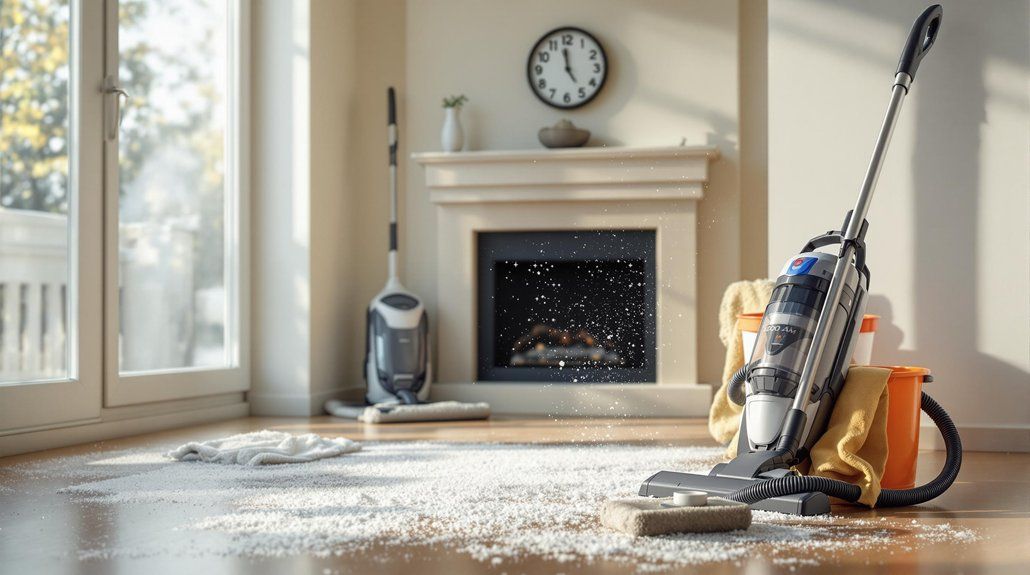
How Many Hours a Week Do You Spend Cleaning Your House
You likely spend more time cleaning your house than you realize. On average, individuals dedicate about 6 hours a week to keeping their homes tidy, with that number increasing to around 7 hours for parents. The size of your home plays a significant role in cleaning time, with smaller spaces requiring less effort and larger homes demanding more. But what factors beyond home size influence your cleaning schedule, and how do you compare to others in managing household chores? Let’s explore the intricacies of household cleaning and uncover the surprising variations in cleaning habits.
Average Cleaning Time Per Week
Approximately 6 hours per week on cleaning, with parents averaging 7 hours. Not surprisingly, the time you spend cleaning can vary significantly. About 28% of you clean your homes more than 7 hours per week, while 26% clean between 3 and 4 hours per week. On the other end of the spectrum, 10% of you clean less than 1 hour per week.
The size of your home plays a significant role in determining how long you spend cleaning. For instance, a 1-bedroom apartment may require about 1.5 hours of cleaning per week, whereas a 3-bedroom home might need 3 hours of basic cleaning and 1.5 hours of deep cleaning per week. Larger homes, like 5-bedroom houses, could demand up to 5 hours of basic cleaning and 8 hours of deep cleaning per week. This variation highlights how home size and deep cleaning needs can significantly impact your weekly cleaning time.
Deep cleaning tasks add extra hours to your weekly cleaning routine, causing concerns about cleaning frequency and effectiveness. You might worry about whether you’re cleaning enough (34%) and if you’re cleaning correctly (31%). Some household chores, such as laundry and lawn care, can nearly double the total weekly cleaning time, adding up to 14 hours per week.
Factors such as family size and use of outside housecleaning services also influence how much time you spend cleaning. For example, nearly 10% of U.S. households used professional cleaning services last year Professional Cleaning Services. Despite these challenges, you keep your home clean and safe through consistent effort and planning.
Types of Cleaning Frequencies
Cleaning frequency is a significant factor in maintaining a clean home, and it varies based on several factors such as space size, number of users, types of activities, and environmental conditions.
You’ll need to adjust your cleaning schedule accordingly to keep your space clean and tidy. If you live in a small home or office, you might get away with cleaning once a week. Medium-sized homes and offices require more attention, typically needing cleaning twice a week.
Large homes and offices, on the other hand, need more frequent cleaning, often three or more times a week. High-traffic areas, such as bathrooms and kitchens, may need daily cleaning to maintain hygiene standards.
Your daily cleaning tasks should include wiping kitchen counters, cleaning bathroom sinks and toilets, sweeping and mopping floors in high-traffic areas, dusting and vacuuming furniture and living rooms.
Deep cleaning tasks, such as cleaning windows, bathrooms, and bedrooms, should be done on a less frequent basis, like weekly, monthly, or seasonally, depending on the specific needs of your space.
When planning your cleaning schedule, it is also essential to consider health considerations, such as allergies or sensitivities, which may necessitate more frequent cleaning in specific areas.
Understanding that a significant portion of people spend extensive time on cleaning, 28% clean their homes more than 7 hours per week, emphasizing the importance of planning and scheduling cleaning activities effectively.
Professional Cleaning Services Trend
The global professional cleaning services market, valued at USD 74.27 billion in 2023, is projected to grow at a 6.4% CAGR from 2024 to 2032, reaching USD 129.80 billion by 2032.
This growth is driven by increased demand for hygiene and cleanliness, particularly in the commercial sector, such as healthcare facilities and corporate offices. The COVID-19 pandemic has significantly influenced this trend, leading businesses to adopt advanced cleaning technologies and sustainable practices.
In the U.S., the market is expected to grow at a 5.6% CAGR from 2025 to 2030. The residential cleaning services market is also seeing heightened demand, primarily from dual-income households seeking time-saving solutions.
By 2021, 10% of U.S. households were already using professional cleaning services, with 80% of dual-income households expected to follow suit. This shift indicates a robust market environment for professional cleaning services, supported by government initiatives like local grants for small cleaning businesses and the rising adoption of green cleaning practices.
As a result, the industry continues to expand, providing essential services to maintain safe and sanitary environments. The role of technology, including automated cleaning tools, is becoming increasingly important in meeting these high standards. Notably, 74% of households engage in light cleaning regularly, which underlines the ongoing need for professional cleaning services to handle deeper, more thorough tasks.
Daily Household Cleaning Tasks
Effective household cleaning hinges on creating and sticking to a daily routine that addresses various tasks around the house. By incorporating morning and evening cleaning tasks, you can maintain a tidy and organized home.
Start your day by decluttering for 10 minutes, unloading the dishwasher, making your beds, and starting a load of laundry. Don’t forget to take out the trash or recycling if needed.
In the evening, dedicate time to cleaning up after meals, loading and starting the dishwasher, wiping down kitchen counters, and sweeping or vacuuming floors.
Quick daily chores include keeping counters clear, checking floors for cleanliness, and wiping down bathroom counters. Some renters, such as those using Bungalow, may have fewer cleaning responsibilities due to included monthly cleaning services. Additionally, run the dishwasher, sort mail, and water your plants.
High-traffic areas may require daily vacuuming or sweeping, and mirrors and windows need a quick wipe. Consistently tackling these tasks ensures your home remains clean and manageable, setting the stage for deeper weekly cleaning sessions focused on specific rooms and tasks. For larger families, consider implementing daily laundry to keep up with the demand.
Effective Cleaning Strategies
To maintain a clean and organized home, you need to adopt strategies that help you stay on track. Effective cleaning strategies include dividing your house into manageable areas to clean one section at a time.
Use a top-to-bottom approach to avoid redundant work and ensure all areas are covered. Create a cleaning schedule to maintain routine and effectiveness, and gather all necessary supplies in a caddy for easy access.
Start by decluttering before cleaning to make the process more efficient. Focus on high-touch areas like door handles, countertops, and tables. Clean one room at a time, working in sections to ensure comprehensive cleaning.
Always dust before wiping surfaces to avoid spreading dust. Use microfiber cloths, natural cleaning agents like vinegar and baking soda, and all-purpose cleaners for various surfaces. For effective cleaning, prioritize high-traffic areas to achieve the maximum impact.
For deep cleaning, set aside time annually to thoroughly clean the entire house. Regularly clean light fixtures, wash curtains and upholstery, and use specialized tools like vacuum cleaners and squeegees for effective cleaning.
Regular cleaning also helps reduce allergens and breathing issues, making a clean home crucial for overall health.
Cleaning Perceptions and Concerns
Cleaning your home isn’t just about the physical act; it also involves understanding common perceptions and concerns that shape our cleaning habits. You might be one of the 34% of Americans who worry if they’re cleaning enough, or the 31% who wonder if they’re doing it correctly.
It’s natural to have these concerns, especially given the importance of cleanliness in preventing illness and allergy symptoms, a concern for 38% of people.
Moreover, perceptions of cleanliness extend beyond home into public spaces. For instance, 86% of U.S. adults judge the cleanliness of a restaurant based on its restrooms, and in healthcare settings, environmental cleanliness significantly impacts patient satisfaction and healthcare outcomes.
Your own cleaning habits likely reflect these broader perceptions. For example, you might prioritize cleaning fixtures like toilets (which 88% of people clean regularly) and floors (80%), or dread certain cleaning tasks, like the bathroom (52% of people).
Understanding these perceptions and concerns can help you tailor your cleaning approach to meet your needs and maintain a healthy living space.
Cleaning Impact on Well-being
Maintaining a clean and organized home has significant implications for your mental and emotional well-being. By reducing clutter and keeping your space tidy, you lower tension and anxiety, promoting a sense of calmness and control. This is because cluttered environments contribute to feelings of stress and overwhelm, whereas clean and organized spaces evoke a sense of order and tranquility.
You’ll also notice improved focus and productivity. Clearing away clutter allows your brain to concentrate on tasks one at a time, reducing distractions and increasing your ability to stay on track.
Moreover, the physical act of cleaning releases endorphins, which are natural mood lifters, helping you feel happier and more satisfied.
Long-term, making cleanliness a habit has profound benefits for your mental and emotional well-being. It gives you a sense of control over your surroundings and life, reinforcing a positive feedback loop that encourages you to maintain this healthy habit.
A clean and organized environment also promotes a healthier and more harmonious relationship with your surroundings, positively influencing social interactions and overall emotional health. This is why you should hired professional cleaning experts that understand the proper way to clean a home, but are scheduled to clean even when you miss it. If you’re in the Clarksville, Tennessee area or surrounding locations Queen City Cleaning is a great option to keep you house clean.
Household Cleaning Time Distributions
Across various demographics, the time spent on household cleaning tasks reveals significant disparities. You might find yourself in a household where cleaning time is heavily influenced by traditional gender roles, with women spending more time on household cleaning tasks compared to men. The Bureau of Labor Statistics reports that women spend 0.85 hours per day on food preparation and cleanup, compared to 0.43 hours for men.
Your household size also plays a crucial role. Larger households with more occupants require additional cleaning time to maintain cleanliness and order. Personal preferences, work schedules, and social activities further influence how you allocate cleaning time.
For example, younger individuals, particularly millennials and Generation Z, may prioritize work and leisure over household chores, while older adults, especially retirees, have more time available for cleaning and household maintenance.
The average American spends approximately 6 hours per week cleaning their home, with parents spending an average of 7 hours per week on cleaning tasks. Factors such as occupancy, lifestyle, and regional differences impact the distribution of household cleaning tasks.
Efficient cleaning strategies and tools can significantly reduce cleaning time, helping you make the most of your cleaning routine.
Benefits of Professional Cleaning**
Every week, you dedicate a significant chunk of time to cleaning your home, averaging around 6 hours, with some households, like those with children, spending even more.
But have you ever considered the benefits of professional cleaning? Hiring professionals can significantly reduce allergens and dust in your home, using specialized equipment and techniques to remove dust mites, pollen, pet dander, and mold from carpets, upholstery, and hidden corners.
Professional cleaners also prevent respiratory issues like asthma and respiratory infections by eliminating allergens and pollutants, which is especially crucial for those with pre-existing respiratory conditions.
Additionally, they use hospital-grade disinfectants to sanitize high-touch surfaces, reducing the spread of germs and preventing illnesses.
Beyond physical health, professional cleaning services can also enhance your mental and emotional well-being. A clean and organized home environment reduces stress and anxiety, promotes better sleep quality, and boosts productivity.
By letting professionals handle cleaning tasks, you save time, maintain a consistent cleaning quality, and enjoy a healthier living space.
With the right cleaning service, you can enjoy a cleaner home without sacrificing your precious time. This investment in health and happiness benefits everyone in your household.
Frequently Asked Questions
How Often Should a Home Receive Deep Cleaning Services?
You should deep clean your home every 3-6 months, depending on factors like the number of occupants, pets, and high-traffic areas. Some areas, like kitchens and bathrooms, may need it more frequently, ideally every 2-3 months.
What Equipment Is Typically Used in Deep Versus Light Cleaning?
You use different equipment for deep versus light cleaning. Deep cleaning involves heavy-duty tools like steam cleaners, pressure washers, and scrub pads, while light cleaning uses general-purpose items like vacuum cleaners, dusters, mops, and microfiber cloths.
How Does Demographic Change Influence the Growth of Cleaning Services?
You’ll notice that demographic changes significantly influence the growth of cleaning services as younger people and two-income households with limited time drive the demand for professional cleaning, seeking convenience and efficiency.
What Percentage of Households Use Professional Cleaning Services Regularly?
You might be surprised to know that nearly 10% of U.S. households used professional cleaning services in 2021, and it’s expected that 80% of two-income households will use these services in the coming years.
Does Deep Cleaning Significantly Reduce Household Allergens Compared to Light Cleaning?
You’ll significantly reduce household allergens by choosing deep cleaning over light cleaning, as it targets hard-to-reach spots and critical areas where dust accumulates, reducing allergen levels by nearly 90%.
Conclusion
You spend an average of 6 hours a week cleaning your house, but this time can vary greatly depending on your home size, lifestyle, and personal priorities. Larger homes require more cleaning time, while smaller spaces need less. Some people dedicate over 7 hours weekly, while others struggle to find just an hour. Professional cleaning services are on the rise, offering a convenient solution for those short on time. Effective strategies and daily tasks can also make cleaning more manageable.
Table of Contents
More Articles
Categories
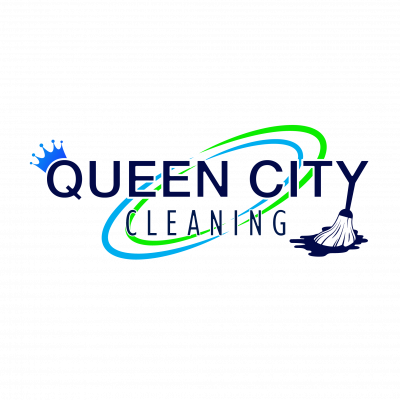
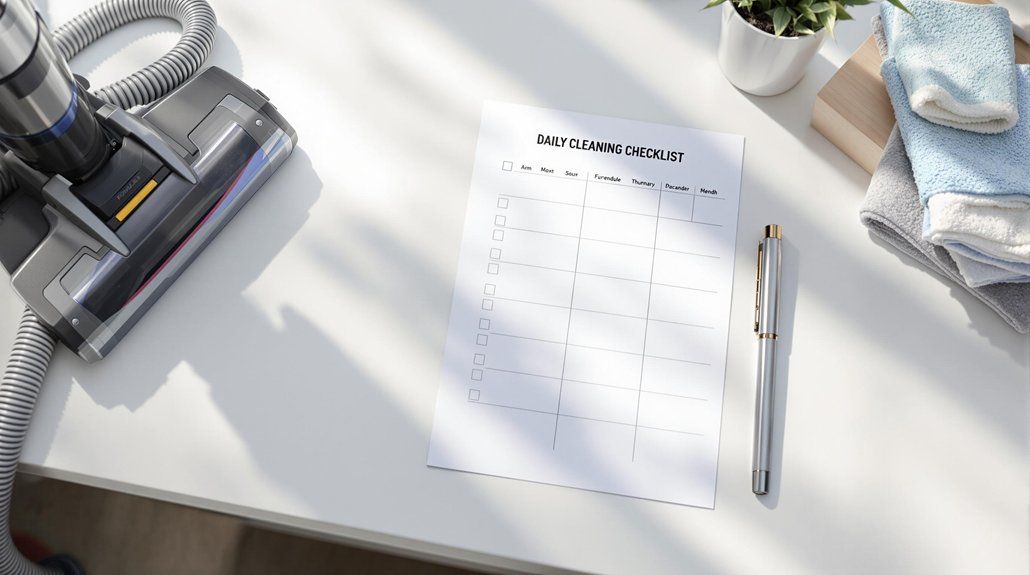
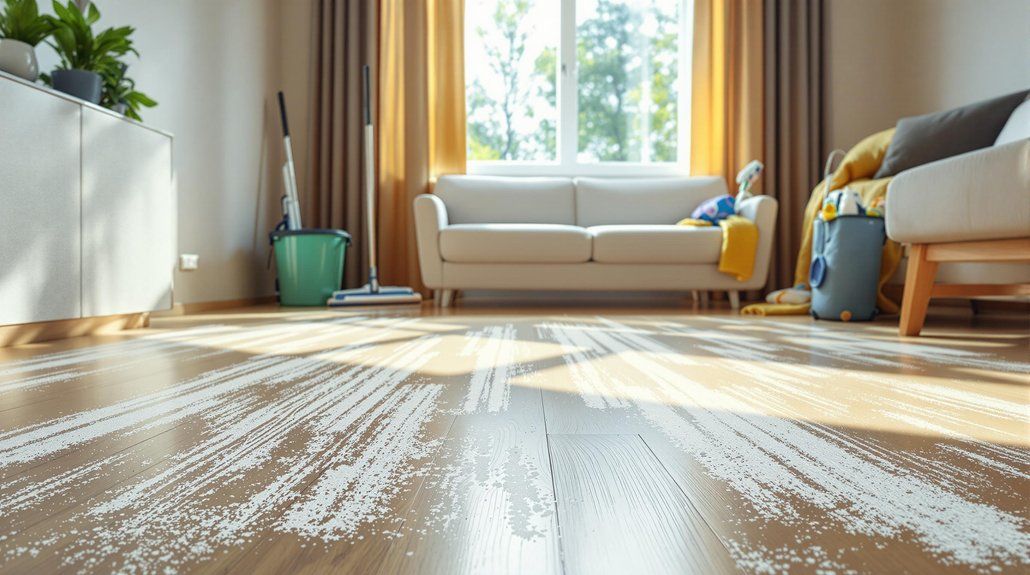
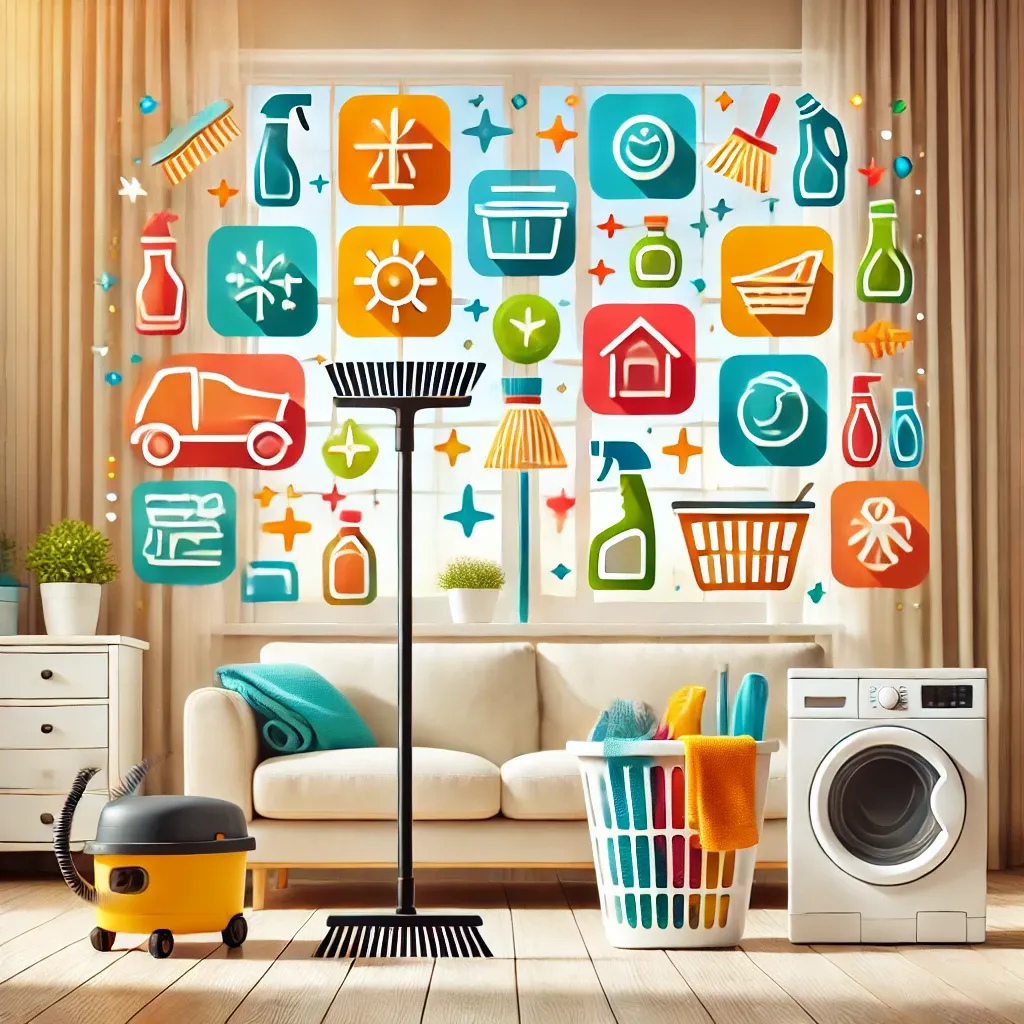
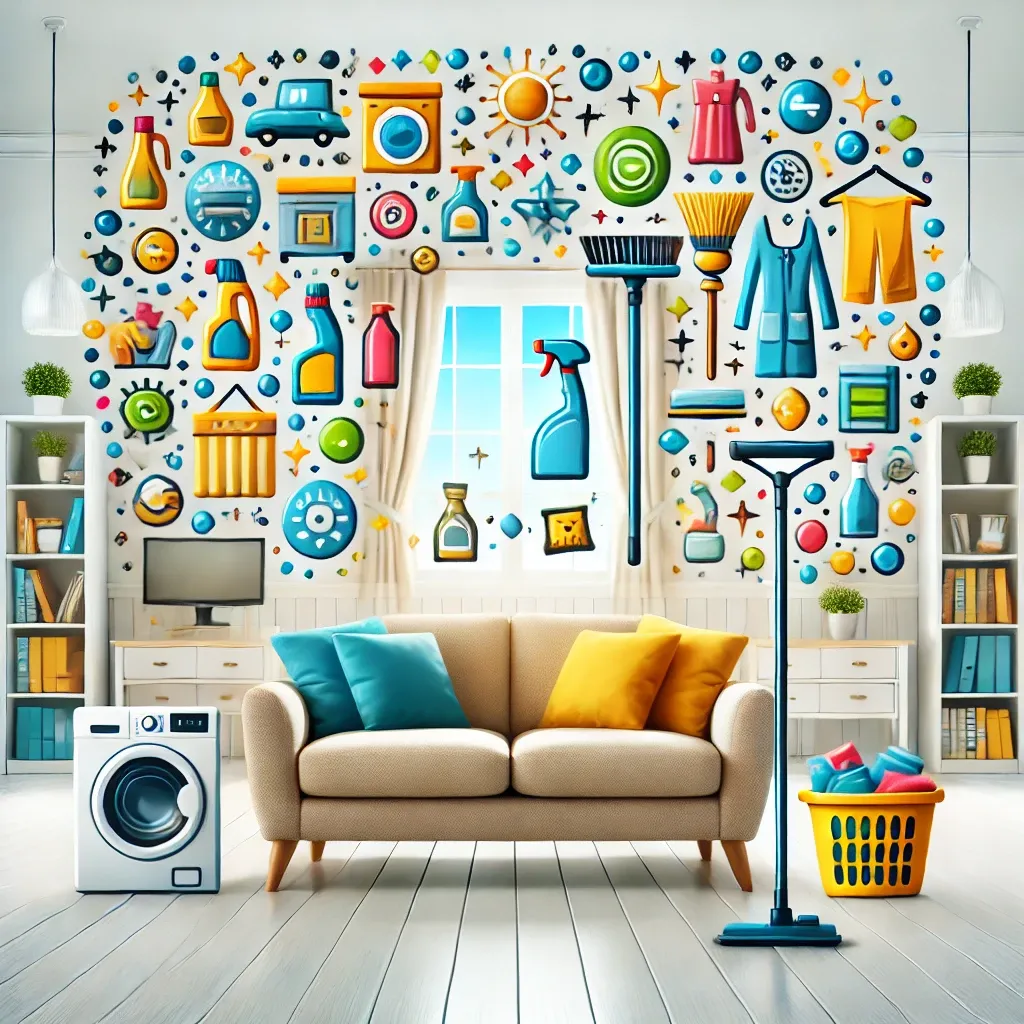
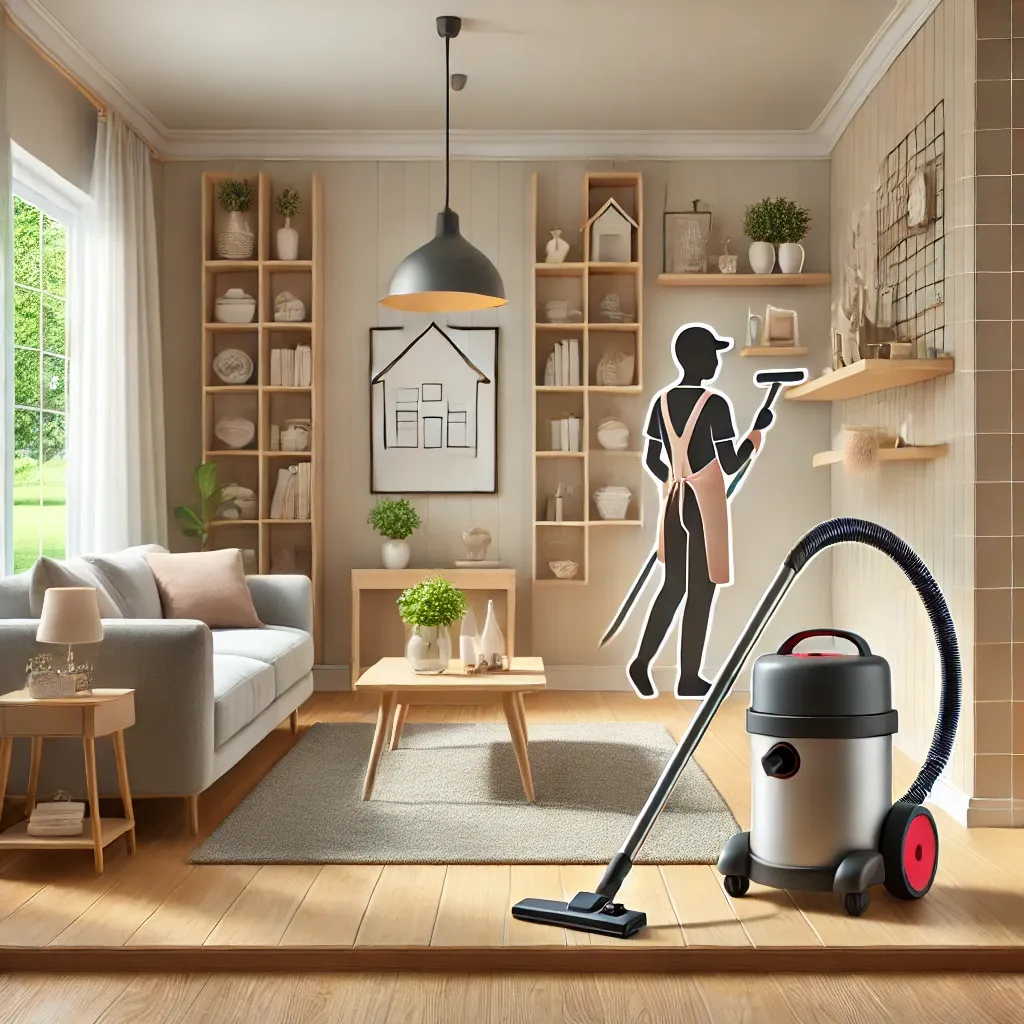
Leave a Reply